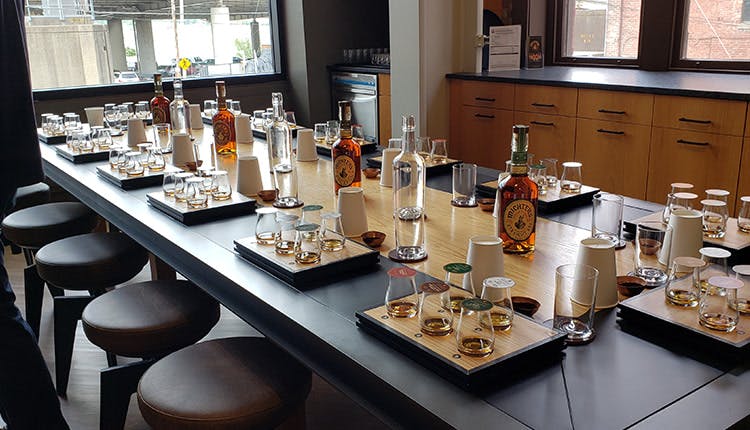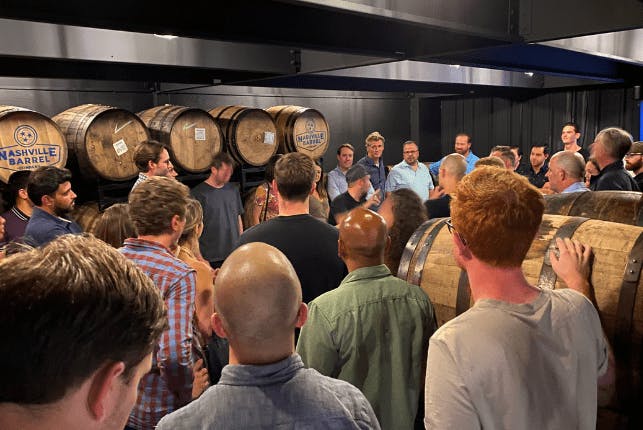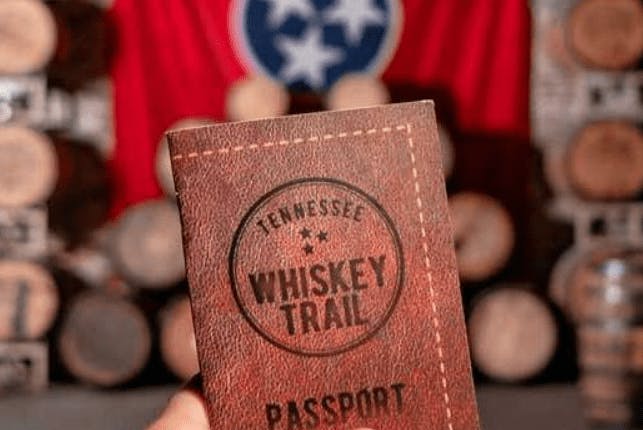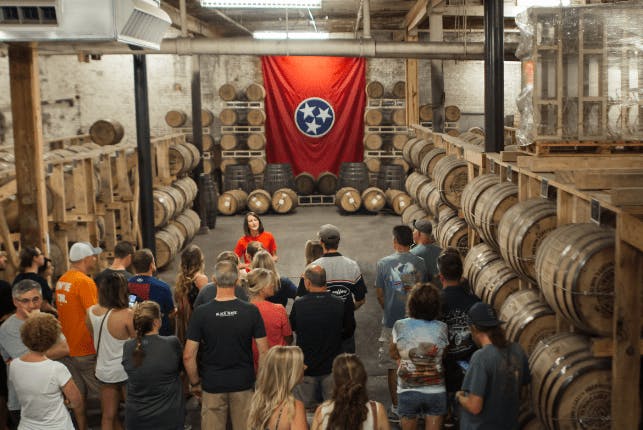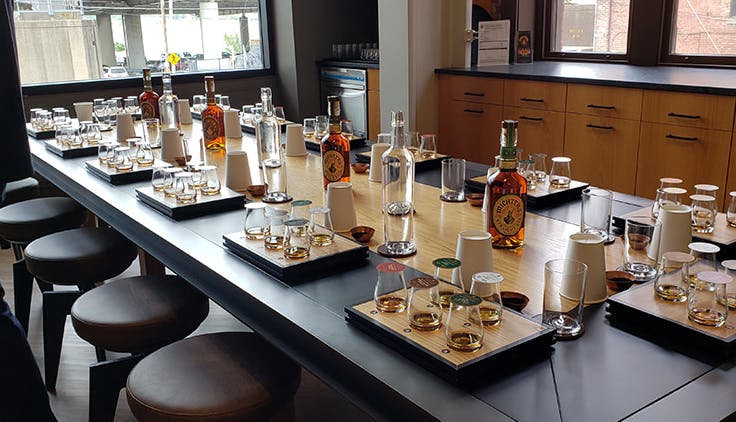The History of Whiskey Distilling in Tennessee
Bourbon, Nashville,
Feb 21, 2025
- Share
Twenty-eight years. Remember that number, as it plays a big part in the history of Tennessee’s whiskey distilling industry.
Much like the early settlers in Kentucky, the pioneers who landed in Tennessee found a landscape ripe for distilling, with its natural limestone-filtered water, varied seasonal temperatures and enriched soil that could grow healthy fields of grains. In the late 1700s and 1800s, there were hundreds of farm-based distilleries throughout Tennessee, as well as moonshiners who passed down distilling traditions generation after generation.
Tennessee was a major player in the whiskey industry leading up to the turn of the 20th century and had just as much clout as Kentucky bourbon, but all that momentum came to an abrupt halt in 1910. While most states in America endured 13 years of Prohibition, the banning of alcohol started earlier in Tennessee and lasted longer as well. That incomprehensible number is 28 years. Let that sink in for a moment.
But first … while there were hundreds of distilleries producing whiskey in the state before those long, dry 28 years, let’s take a look at the timeline of Tennessee distilling in regard to the biggest two.
1866 — Jack Daniel Distillery is Established
Jack Daniel’s Distillery is the oldest registered distillery in the United States, constructed near the mineral-rich Cave Spring Hollow in Lynchburg. Jasper Newton Daniel, aka Jack, learned the craft from his caretaker, the Rev. Dan Call, and an enslaved man named Nathan “Nearest” Green.
Due to religious conflicts, Call turned over the distillery to Jack and Nearest, and the two created the Old No. 7 brand of Jack Daniel’s that remains the best-selling American whiskey in the world today. They also made their whiskey perfecting the charcoal-mellow filtration method known as the Lincoln County Process. This extra step distinguishes Tennessee whiskey from bourbon and is said to create a purer whiskey.
The story of Jack Daniel has become a legacy and continues to be written as the distillery innovates. Guests can learn the first-hand the history of Jack Daniel’s Distillery, tour the cave where the essential limestone-filtered water ingredient resides, walk the halls of the barrel rooms and the grounds of the distillery on an “Angel’s Share” tour, and enjoy a tasting of the premium whiskeys on a Jack Daniel’s Tour with Mint Julep Experiences. The Jack Daniel’s Tour includes transportation to Lynchburg from Nashville and lunch at Miss Mary Bobo’s restaurant.
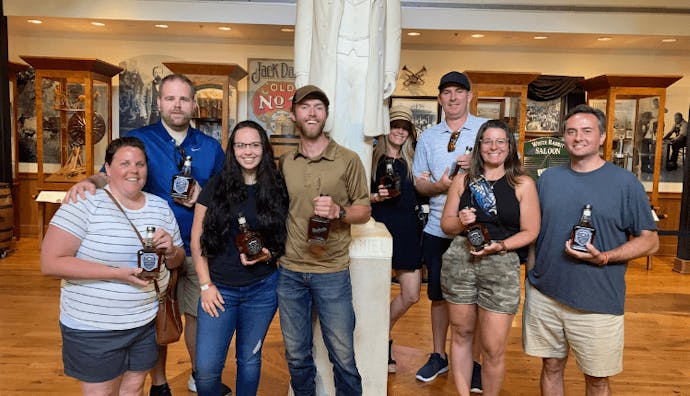
1878 — George Dickel Starts Cascade Hollow Distillery
George Dickel was a well-known Nashville merchant who decided to dip his toes into the whiskey industry. So in 1878, he bought the largest share in Cascade Hollow Distillery, a new operation opening in the nearby Coffee County. The distillery flourished until Dickel’s death in 1894, and his wife Augusta continued its success with business partner V.E. Shwab.
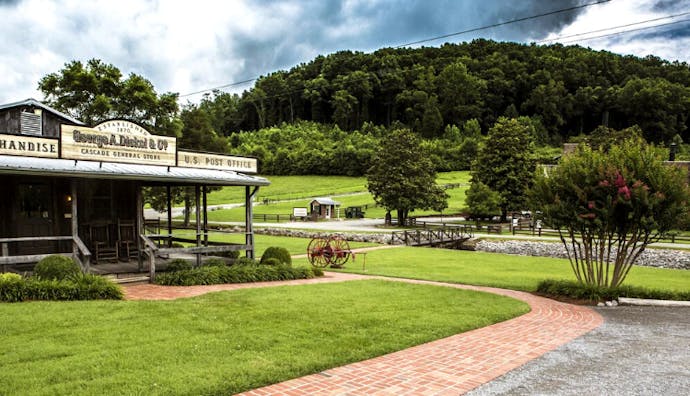
1909/1910 — Manufacturer’s Act Stops Distilling
In the early 1900s, the Temperance Movement was gaining traction in Southern states, especially Tennessee. So in 1910, the state government passed the Manufacturer’s Act, which prohibited the production of alcoholic beverages. The other part of the bill outlawed the sale or consumption of alcohol within four miles of private or public schools.
All distilleries were shut down.
1910 — Jack Daniel’s Distillery Moves to St. Louis & Birmingham, Ala.
Due to Prohibition, Jack Daniel’s nephew, Lem Motlow, decided to relocate distilling operations to St. Louis and Birmingham, but none of the production from these locations was ever sold because of quality issues.
1910 — George Dickel & Co. Moves to Louisville
During Tennessee’s Prohibition, George Dickel & Co. moved its operations to Louisville’s Stitzel-Weller Distillery, where it continued to produce whiskey even during national Prohibition using a medicinal license.
1933 — National Prohibition Ends
The end comes to Prohibition at a national level, but no counties in Tennessee are allowed to distill alcoholic beverages still.
1938 — Statewide Prohibition Ends
Five years after national Prohibition ends, Tennessee state officially ends Prohibition. Even though the ban was lifted for all 95 counties in Tennessee in 1938, only Lincoln, Moore and Coffee counties were allowed to bring back distilling operations.
Between 1938 and 1997 Whiskey Distilleries Reopen in Tennessee
1938 —
Jack Daniel Distillery Reopens in Lynchburg (Moore County)1958 —
George Dickel Reopens Cascade Hollow in Tullahoma (Coffee County)1997 —
Prichard’s Distillery Opens in Kelso (Lincoln County)2009 — More Counties Get Green Light to Distill
It wasn’t until 2009 that Tennessee lawmakers passed a law allowing the legal production of whiskey and other distilled spirits in the 41 counties that already have approved retail package sales and liquor-by-the-drink sales. The three legally operating distilleries (mentioned above) were about to get some company.
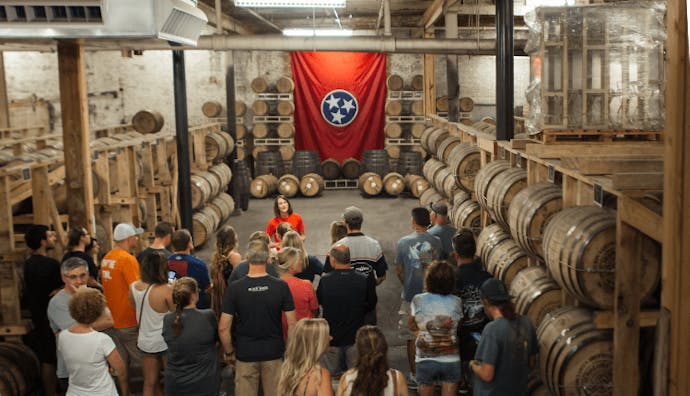
2013 — Tennessee Whiskey Defined
In 2013, Gov. Bill Haslam signed House Bill 1084 that further defined Tennessee whiskey — other than being whiskey made in Tennessee. The new law requires distilleries to use the Lincoln County Process as well as the existing requirements for making bourbon. Prichard’s Distillery is the only one exempt from using the Lincoln County Process, per the law.
Curious to know more behind what qualifies as Tennessee whiskey? Tennessee whiskeys are held to the same legal definition as bourbon. But, they take it one step further with a filtering process through maple charcoal. This is known as the “Lincoln County Process.”
Otherwise, Tennessee whiskey must be:
- Made in Tennessee.
- At least 51% corn.
- Distilled at no higher than 160 proof.
- Barreled at no higher than 125 proof.
- Put into a new, charred oak barrel.
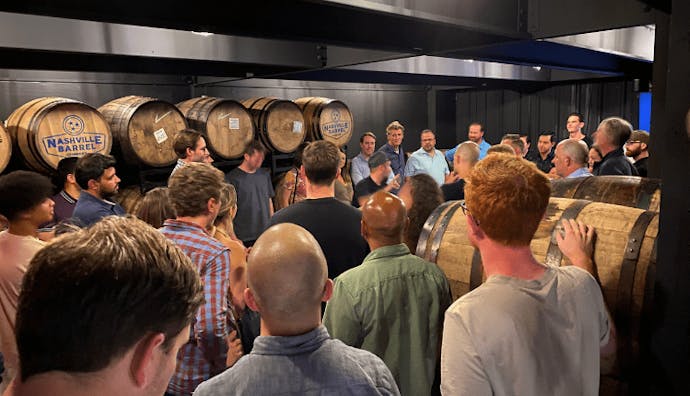
2017 — Tennessee Whiskey Trail Begins
As more and more whiskey distilleries started popping up around Tennessee in the 2000s, the Tennessee Distillers Guild decided to create a collaborative tourism experience much like the highly successful Kentucky Bourbon Trail®. In 2017, the Tennessee Whiskey Trail was launched featuring a passport-style website and app where tourists could collect stamps after visiting each of the state’s distilleries, which were divided into three regions: West Tennessee, Middle Tennessee and East Tennessee.
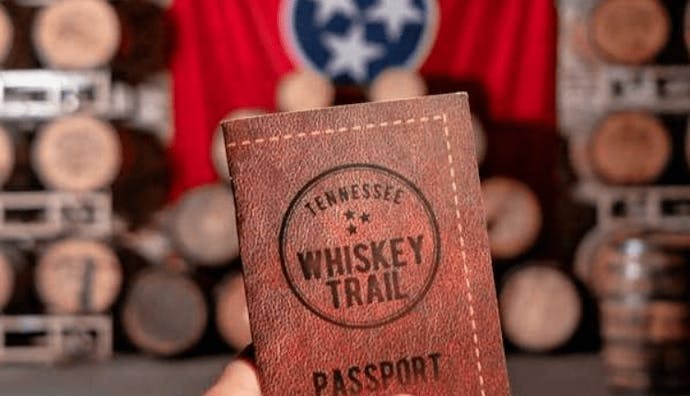
There are now 25 participating whiskey distilleries, and more are being added each year. Mint Julep Experiences Nashville partners with a number of these whiskey distilleries to bring exclusive tours and tastings to guests. Read the full guide to the Tennessee Whiskey Trail to start planning your distillery stops and guided tours.
Here’s a list of the current members by region.
West Tennessee
- Old Dominick Distillery (Memphis)
Middle Tennessee
- Big Machine Distillery (Lynnville & Nashville)
- Corsair Distillery (Nashville)
- George Dickel (Tullahoma)
- H Clark Distillery (Thompson’s Station)
- Jack Daniel Distillery (Lynchburg)
- Leiper’s Fork Distillery (Franklin)
- Nashville Craft Distillery (Nashville)
- Nearest Green Distillery (Shelbyville)
- Nelson’s Green Brier Distillery (Nashville)
- Old Glory Distilling Co. (Clarksville)
- Pennington Distillery (Nashville)
- Prichard’s Distillery (Kelso)
- Short Mountain Distillery (Woodbury)
East Tennessee
Bootleggers Distillery
(Hartford)Brushy Mountain Distillery
(Petros)Chattanooga Whiskey Distillery
(Chattanooga)Knox Whiskey Works
(Knoxville)Lost State Distillery
(Bristol)Old Forge Distillery
(Pigeon Forge)Old Tennessee Distilling Co.
(Kodak)Ole Smoky Distillery
(Gatlinburg, Pigeon Forge & Nashville)Post Modern Spirits
(Knoxville)Sugarlands Distilling Co.
(Gatlinburg)Tennessee Legend Distillery
(Sevierville, Nashville & Cookeville)
A year after the trail was launched, more than 6.3 million visitors flocked to Tennessee to experience the distillery-to-distillery journey, proving that if you build it (and it’s good), they will come.
In a 2018 news release revealing the record-breaking boom in tourism, Tennessee Distillers Guild President Kris Tatum said: “We are proud to give visitors the opportunity to savor the finest whiskeys at their source. Throughout their journey, guests can experience the history, culture, food and people in our cities and small towns along the way that make our beautiful state stand apart. It’s truly a unique offering that drives tourism throughout the state and gives visitors many reasons to come back again and again.”
The Tennessee Whiskey Trail continues to attract visitors from around the world each year, and while the 2020 pandemic slowed travel, the trail is once again seeing an uptick in guests looking to experience everything Tennessee has to offer — from country music to country cooking and everything in between.
2021 — May 21st Named ‘International Tennessee Whiskey Day’
As the Tennessee whiskey category continues to grow and gain more momentum, there’s a certain pride that comes right along with its success. Like bourbon, it’s a pride steeped in tradition, in innovation, in quality products and in a spirit that is truly American made.
On May 5, 2021, the Tennessee General Assembly officially declared May 21st as International Tennessee Whiskey Day, a date that signifies the state’s repeal of the ban on distilling, which was May 21, 1937.
Tennessee House Speaker Cameron Sexton wrote in the “Whiskey Day” resolution (HJR0477) that it is important to celebrate and acknowledge the Tennessee distilling industry — including its people and products.
“When consumers see ‘Tennessee whiskey’ on the label, they know it is a premium product that is made with quality ingredients, the utmost care, craftsmanship, and character and to a world-class standard,” Sexton wrote. “We honor and commend all of Tennessee’s distilleries, their workers, and the generations of families who have gone before them.”
